
Find Help
More Items From Ergsy search
-

What is West Nile Virus?
Relevance: 100%
-
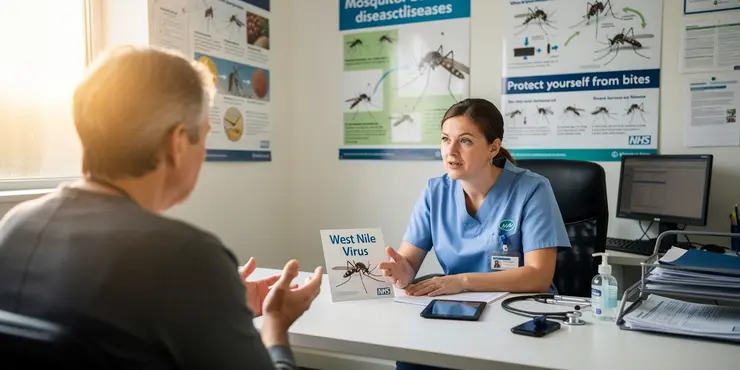
What is West Nile Virus?
Relevance: 99%
-

Is there a vaccine for West Nile Virus?
Relevance: 99%
-

Are there treatments for West Nile Virus?
Relevance: 98%
-

Is there a test for West Nile Virus?
Relevance: 98%
-
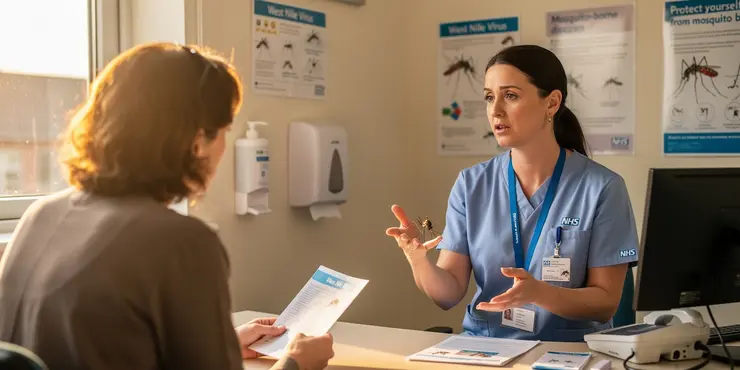
How is West Nile Virus transmitted?
Relevance: 96%
-

What are the symptoms of West Nile Virus?
Relevance: 95%
-

How prevalent is West Nile virus in the UK?
Relevance: 95%
-
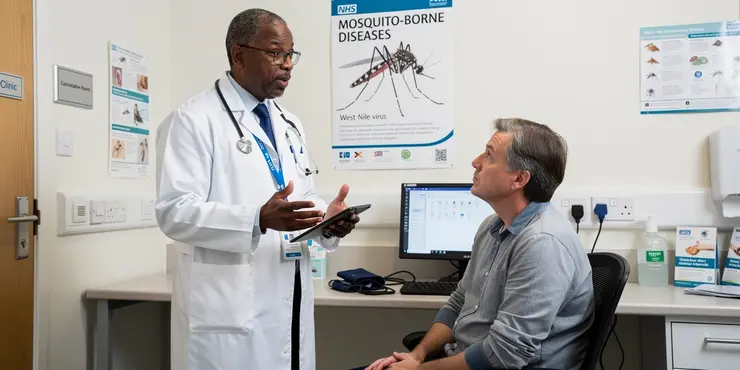
Which countries are affected by West Nile Virus?
Relevance: 94%
-

Can pets get West Nile Virus?
Relevance: 93%
-

What should I do if I think I have West Nile Virus?
Relevance: 89%
-

How do health officials monitor West Nile Virus?
Relevance: 88%
-

Who is at risk for severe illness from West Nile Virus?
Relevance: 87%
-

How can West Nile Virus be prevented?
Relevance: 62%
-

Can mosquitoes carrying West Nile Virus be controlled?
Relevance: 61%
-

Can you get West Nile Virus more than once?
Relevance: 59%
-

What other viruses are tested for in blood donations?
Relevance: 49%
-

Are UK mosquitoes capable of transmitting Zika virus?
Relevance: 43%
-

What diseases are spread by mosquitos in the UK in 2025?
Relevance: 40%
-

When is West Nile Virus most active?
Relevance: 40%
-

Can West Nile Virus be transmitted from person to person?
Relevance: 35%
-

Is the Marburg virus related to the Ebola virus?
Relevance: 35%
-

What is the Ebola virus?
Relevance: 32%
-

Can West Nile Virus spread through blood transfusions or organ transplants?
Relevance: 31%
-
Do all mosquitoes in the UK carry diseases?
Relevance: 30%
-
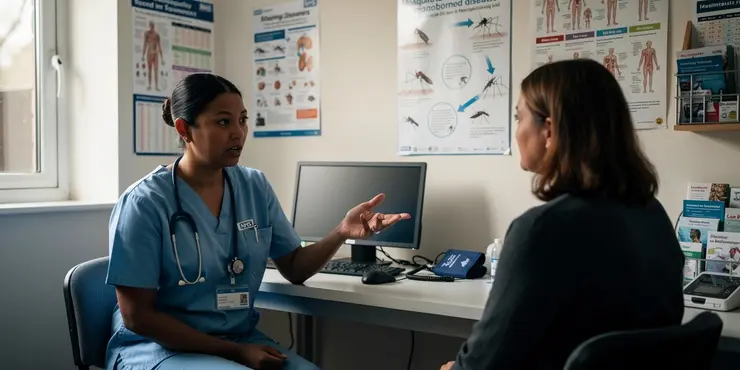
What regions of the UK are most affected by mosquito-borne diseases?
Relevance: 27%
-

Is there a cure for Nipah Virus?
Relevance: 25%
-

What is Nipah Virus?
Relevance: 25%
-

What is the Marburg Virus?
Relevance: 25%
-

Is there a vaccine for Marburg virus?
Relevance: 25%
-

Is there a vaccine for the Zika virus?
Relevance: 25%
-

Is Zika virus present in the UK?
Relevance: 25%
-

How is the Zika virus transmitted?
Relevance: 24%
-

How is Nipah Virus diagnosed?
Relevance: 24%
-

How is the Marburg virus transmitted?
Relevance: 24%
-

How is Nipah Virus transmitted?
Relevance: 24%
-
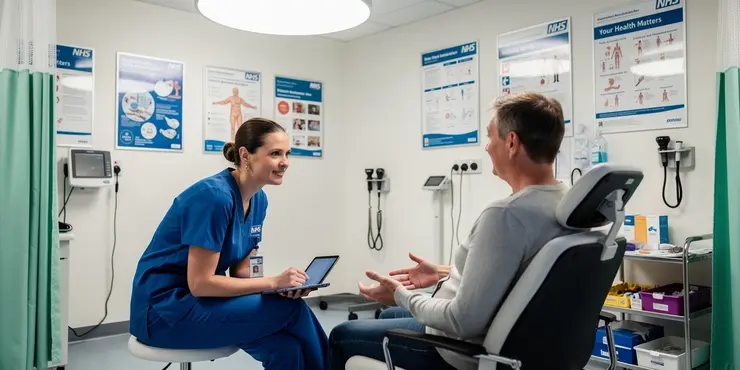
Does the UK have Zika virus?
Relevance: 24%
-
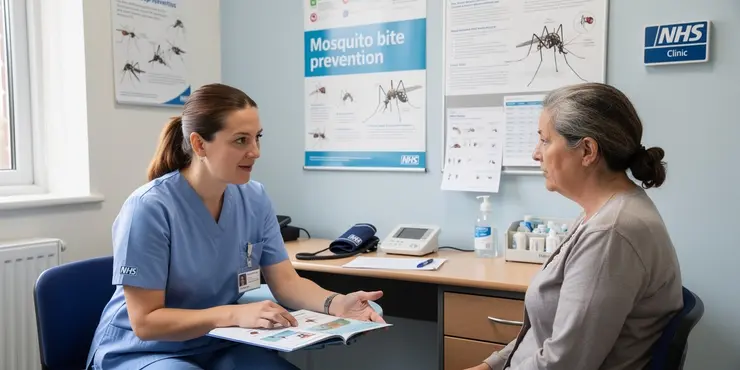
How is Chikungunya virus transmitted?
Relevance: 24%
-

What are the symptoms of Zika virus?
Relevance: 24%
-

What symptoms should I watch for if I suspect a mosquito-borne disease?
Relevance: 24%
Introduction to West Nile Virus
West Nile Virus (WNV) is a mosquito-borne virus that can cause flu-like symptoms in humans. Although it is not endemic in the UK, it can be contracted when traveling to areas where the virus is present. Understanding the symptoms and appropriate steps to take if you suspect you have contracted the virus is crucial.
Recognizing the Symptoms
Most people infected with West Nile Virus do not experience any symptoms. However, approximately 20% of infected individuals may develop mild symptoms such as fever, headache, body aches, nausea, vomiting, and sometimes swollen lymph glands or a skin rash on the chest, stomach, and back. These symptoms can appear between 2 to 14 days after a person is bitten by an infected mosquito.
In rare cases, the virus can lead to severe neurological illnesses, including encephalitis or meningitis. Symptoms of severe infection include high fever, stiff neck, disorientation, tremors, convulsions, muscle weakness, vision loss, numbness, and paralysis. These require immediate medical attention.
Immediate Actions
If you suspect you have contracted West Nile Virus, the first step is to monitor your symptoms closely. Since symptoms can mimic those of other illnesses, such as the flu, it’s important to note their onset and duration. If you develop mild symptoms and have recently been in an area where WNV is prevalent, consider seeing a healthcare professional for advice.
Although there is no specific treatment for WNV, over-the-counter pain relievers can help reduce fever and alleviate some symptoms. It is critical to keep hydrated and get plenty of rest. However, if you experience severe symptoms, seek medical attention immediately as hospitalization may be required.
Consulting Healthcare Professionals
In the UK, contact your GP if you are concerned about your symptoms or have traveled to a location with active West Nile Virus transmission. They can provide guidance, and if necessary, perform diagnostic tests to confirm the infection. Be prepared to provide your travel history and any relevant information regarding mosquito exposure.
Preventive Measures
While in areas where WNV is active, take preventive measures to reduce mosquito exposure. Use insect repellent, wear long-sleeved clothing, and stay indoors during peak mosquito activity hours, typically dusk and dawn. Ensure windows and doors have screens to prevent mosquitoes from entering your living space.
Additionally, removing standing water around your home can help minimize breeding sites for mosquitoes. In the UK, public health systems monitor for imported cases and work to prevent any potential outbreak.
Conclusion
While West Nile Virus is not a major concern in the UK, it’s important to be vigilant if traveling to high-risk areas. By recognizing symptoms early and consulting healthcare professionals, you can ensure timely and appropriate care. Preventive measures remain the best way to protect yourself from this virus.
What is West Nile Virus?
West Nile Virus (WNV) is a virus that mosquitoes can carry. It can make people feel like they have the flu. WNV is not common in the UK, but you can catch it when you travel to places where the virus is found. Knowing what signs to look for and what to do if you think you have the virus is important.
Signs of West Nile Virus
Most people with West Nile Virus do not feel sick. But about 20 out of 100 people may feel mild sickness. This can include fever, headache, body pains, feeling sick, throwing up, and sometimes swollen neck or chest bumps and rash. These signs can start 2 to 14 days after a mosquito bite.
In very rare cases, the virus can make people very sick with brain problems. Bad signs include a very high fever, stiff neck, feeling confused, shaking, fits, weak muscles, trouble seeing, numbness, and not being able to move. These need a doctor right away.
What to Do
If you think you have West Nile Virus, watch how you feel closely. Since it can seem like the flu, note when signs start and how long they last. If you feel a little sick and were in a place with WNV, see a doctor for help.
There is no special cure for WNV, but you can take medicine to help with fever and pain. Drink lots of water and rest. If you feel very sick, see a doctor right away because you might need to go to the hospital.
Talking to Doctors
In the UK, call your family doctor if you are worried about your sickness or have traveled to a place with West Nile Virus. They can help and might test you to see if you have the virus. Tell them about any trips and if you were around mosquitoes.
How to Stay Safe
In places with West Nile Virus, keep away from mosquitoes. Use bug spray, wear clothes with long sleeves, and stay inside when mosquitoes are out, like at night and early morning. Make sure windows and doors have screens to keep mosquitoes out.
Also, get rid of water around your home where mosquitoes can lay eggs. In the UK, health workers check for cases from other countries and stop any spread of the virus.
Summary
West Nile Virus is not a big worry in the UK, but be careful if you travel to places with the virus. By knowing the signs early and seeing a doctor, you can get the care you need. Staying away from mosquitoes is the best way to protect yourself from the virus.
Frequently Asked Questions
What is West Nile Virus?
West Nile Virus is a mosquito-borne virus that can cause fever, headaches, body aches, and in severe cases, neurological illnesses.
What are the symptoms of West Nile Virus?
Symptoms can include fever, headache, body aches, joint pains, vomiting, diarrhea, or rash. Severe symptoms may include high fever, neck stiffness, disorientation, coma, tremors, seizures, or paralysis.
How is West Nile Virus transmitted?
It is primarily transmitted to humans through the bite of an infected mosquito.
What should I do if I suspect I have West Nile Virus?
If you have symptoms consistent with West Nile Virus, you should consult a healthcare provider for advice and possible testing.
Is there a test for West Nile Virus?
Yes, a healthcare provider can order specific blood tests to diagnose West Nile Virus.
Can West Nile Virus be treated?
There is no specific antiviral treatment for West Nile Virus, but supportive care can help manage symptoms.
Should I seek medical attention if I think I have West Nile Virus?
Yes, especially if you experience severe symptoms such as high fever, confusion, or difficulty breathing.
Can West Nile Virus be prevented?
Yes, you can reduce your risk by avoiding mosquito bites, using insect repellent, wearing protective clothing, and eliminating standing water around your home.
Is West Nile Virus contagious?
No, West Nile Virus is not spread from person to person through casual contact.
When should I call a doctor if I have West Nile Virus symptoms?
You should call a doctor if you experience symptoms of West Nile Virus, especially if they are severe or worsening.
How long do symptoms of West Nile Virus last?
Most people recover completely, but fatigue and weakness can last for weeks or months. Severe illness can require prolonged recovery.
Are there groups at higher risk for severe West Nile Virus infection?
People over 60, and those with certain medical conditions like cancer, diabetes, or kidney disease, have a higher risk of serious illness.
What steps should I take if I'm diagnosed with West Nile Virus?
Follow your healthcare provider's recommendations, rest, stay hydrated, and manage symptoms with over-the-counter pain relievers if advised.
Can I be immune to West Nile Virus after infection?
Infection with West Nile Virus typically provides immunity to future infections, though it's not entirely clear if this immunity is lifelong.
Do I need to report West Nile Virus to health authorities?
In many areas, West Nile Virus is a reportable disease. Your healthcare provider will guide you on reporting.
Can West Nile Virus cause long-term effects?
Some people may experience long-term symptoms like muscle weakness, fatigue, or neurological damage after severe infection.
Can West Nile Virus affect pets?
While rare, West Nile Virus can infect pets, especially horses. Talk to a veterinarian if concerned.
Are there vaccines available for West Nile Virus?
Currently, there is no vaccine available for humans, but vaccines are available for horses.
What is the incubation period for West Nile Virus?
Symptoms of West Nile Virus usually appear 2 to 14 days after being bitten by an infected mosquito.
Can I travel if I have West Nile Virus symptoms?
It's advisable to rest and avoid travel, particularly if you have severe symptoms or have been advised by a healthcare provider.
What is West Nile Virus?
West Nile Virus is a sickness caused by a virus. Viruses are tiny germs that can make people sick.
You can get West Nile Virus from a mosquito bite. Mosquitoes are small bugs that can bite you, especially when you are outside in the evening.
If you want to know more about this virus, you can ask a doctor or a nurse.
Using pictures or videos can help you understand better.
West Nile Virus is a sickness that comes from mosquitoes. It can make you have a fever, a headache, and aches in your body. Sometimes, it can make people very sick in their brain and nerves.
What happens if you have West Nile Virus?
West Nile Virus can make you feel sick. Here are some things you might feel:
- Fever (feeling hot)
- Headache (your head hurts)
- Body aches (your body is sore)
- Tiredness (feeling very tired)
Sometimes, people might feel even worse. If you feel very sick, talk to a doctor.
Ask someone you trust to help you understand more. You can also use pictures or videos to learn.
When you feel sick, you might have:
- a fever (your body feels hot)
- a headache (your head hurts)
- body aches (your body hurts)
- joint pains (your knees or elbows hurt)
- vomiting (throwing up)
- diarrhea (runny poops)
- a rash (red spots on your skin)
Sometimes, people get very sick and have:
- a very high fever
- a stiff neck (you can’t move your head easily)
- disorientation (feeling confused)
- coma (not being awake)
- tremors (shaking)
- seizures (your body shakes a lot)
- paralysis (can’t move parts of your body)
If you need help with reading, ask a friend or use text-to-speech tools.
How do people get West Nile Virus?
West Nile Virus can make you sick. It comes from mosquito bites.
Here's how it happens:
- A mosquito bites a bird that has the virus.
- Then, the mosquito bites a person and gives them the virus.
To stay safe:
- Use insect repellent to keep mosquitoes away.
- Wear long sleeves and pants to protect your skin.
- Stay inside when there are lots of mosquitoes, especially at dusk and dawn.
People can catch it from a mosquito bite. The mosquito must have it first.
What should I do if I think I have West Nile Virus?
If you think you might have West Nile Virus, you should:
- See a Doctor: Tell a doctor how you feel. They can help you.
- Take Care of Yourself: Rest a lot and drink water.
- Ask for Help: Tell family or friends about how you feel. They can support you.
You can use picture charts or ask someone to read with you for more support.
If you feel sick and think you might have West Nile Virus, talk to a doctor or nurse. They can help you and tell you if you need any tests.
Can you get a test for West Nile Virus?
Yes, you can get a test for West Nile Virus. Doctors use a blood test or a test of the liquid around your spine to find out if you have it.
If you have questions, ask your doctor or nurse. They can help you understand.
It can help to have someone with you when you talk to the doctor. This person can help you remember what the doctor says.
Yes, a doctor can ask for a special blood test to see if someone has West Nile Virus.
Can West Nile Virus be treated?
West Nile Virus is a sickness you can get from a mosquito bite. We cannot treat the virus itself, but most people get better without special help.
If you are sick, you can:
- Rest a lot
- Drink plenty of water
- Take medicine for pain and fever (like paracetamol)
If you feel very sick, tell an adult or see a doctor.
There is no medicine that can stop West Nile Virus. But doctors can help make you feel better.
Should I see a doctor if I think I have West Nile Virus?
If you feel sick and think you have West Nile Virus, see a doctor. It's important to get help.
Here are some things you can do:
- Ask someone you trust to go with you to the doctor.
- Write down how you feel. This can help you tell the doctor.
- If reading is hard, ask someone to read for you.
Getting help early can make you feel better faster.
Yes, see a doctor if you have bad symptoms. This means having a very high temperature, being really confused, or finding it hard to breathe.
How can we stop West Nile Virus?
Here are some easy ways to help you stay safe from West Nile Virus:
- Wear bug spray: Use bug spray to keep mosquitoes away.
- Cover up: Wear long sleeves and pants when outside.
- Stay inside at dusk and dawn: Mosquitoes are active at these times.
- Use window screens: Make sure windows and doors have screens to keep mosquitoes out.
- Remove standing water: Empty water from buckets, flower pots, and other places where mosquitoes like to lay eggs.
These steps can help keep you safe from West Nile Virus.
You can stay safer by keeping mosquitoes away. Here are some ways to do it:
- Use bug spray. It helps keep mosquitoes away.
- Wear clothes that cover your arms and legs. This stops mosquitoes from biting you.
- Check your home for water puddles. Mosquitoes like to lay eggs in water.
These simple steps can help you a lot.
Can you catch West Nile Virus from someone else?
No, you cannot catch West Nile Virus from just being around someone.
When should I call a doctor if I feel sick from West Nile Virus?
If you feel sick and think it might be from West Nile Virus, here is what you can do:
Watch how you feel: If you feel very sick or it gets worse, you should call a doctor.
Use a thermometer: Take your temperature if you feel hot. If you have a high fever, call a doctor.
Ask someone for help: Ask a family member or a friend if you are not sure what to do. They can help you decide if you need to call a doctor.
Write down any questions: If you have questions for the doctor, write them down. This helps you remember to ask when you call.
Call a doctor if you feel sick and think you might have West Nile Virus. It is very important if you feel really bad or are getting worse.
How long do West Nile Virus symptoms last?
West Nile Virus can make you feel sick. But don't worry, most people get better. Symptoms usually last for a few days. Sometimes, they can last for a few weeks.
Here are some things that can help you feel better:
- Get lots of rest.
- Drink plenty of water.
- Ask an adult for medicine if you have pain.
If you keep feeling sick, tell an adult so they can take you to the doctor.
Many people get all better, but feeling very tired and weak can stay for weeks or months. If someone gets really sick, it might take a long time to feel good again.
Who is more likely to get very sick from West Nile Virus?
People who are over 60 years old and people who are sick with things like cancer, diabetes, or kidney disease can get sicker more easily.
If you want to learn more or need help, you can ask a doctor or use a helpful app.
What should I do if I have West Nile Virus?
If the doctor says you have West Nile Virus, follow these steps:
- Rest a lot to help your body get better.
- Drink water and juice, so you don't get thirsty.
- If you feel pain or have a fever, you can take medicine like paracetamol.
- If you feel very sick or have a high fever, tell an adult or see the doctor again.
You can use a calendar to remember when to take your medicine. If you have questions, ask someone you trust or talk to a nurse. They can help you understand.
Listen to what your doctor or nurse says. Rest when you are tired. Drink lots of water. If you have pain, you can take medicine from the store if your doctor says it's okay.
If I get the West Nile Virus, will I be safe from it in the future?
If you have had the West Nile Virus, your body may learn to fight it so you do not get sick from it again. This is called becoming immune. But, it is not always guaranteed. It is a good idea to stay safe and protect yourself from mosquitoes.
To make reading easier, try these tips:
- Read in a quiet place.
- Use your finger to follow each word.
- Ask someone to read with you.
When you get sick with West Nile Virus, your body usually learns how to fight it. This means you might not get sick from it again. But we're not sure if this protection lasts forever.
Do I need to tell health workers about West Nile Virus?
In lots of places, doctors must tell the government about West Nile Virus. Your doctor will help you report it if needed.
Can West Nile Virus cause long-term problems?
West Nile Virus is a sickness from a mosquito bite.
Some people can feel sick for a long time.
If you feel unwell for a long time, tell a doctor.
Use pictures and simple words to help understand better.
After a bad illness, some people feel weak, very tired, or have trouble with their nerves for a long time.
If you have these feelings, it might help to use a simple schedule and take regular rest breaks.
Can West Nile Virus make pets sick?
Yes, West Nile Virus can make pets like dogs and cats sick. It’s important to keep them safe.
Here are some tips to help:
- Talk to your vet if you are worried about your pet.
- Keep your pets indoors when there are lots of mosquitoes outside.
- Use pet-safe mosquito repellents.
West Nile Virus is not common, but it can make pets sick, especially horses. If you are worried, talk to an animal doctor (veterinarian).
Is there a shot to stop West Nile Virus?
Right now, there is no shot for people. But there is a shot for horses.
How long does it take to get sick from West Nile Virus?
Sometimes, when a mosquito bites you, you can get sick. This can happen if the mosquito has a virus called West Nile. After the bite, it takes a little time before you start to feel sick.
This time is called the "incubation period."
For West Nile Virus, it takes about 2 to 14 days after the bite to feel sick.
If you don't feel well after a mosquito bite, ask a grown-up to help you see a doctor.
To remember or look up the meaning of words like "incubation," you can use a dictionary or ask someone. Drawing pictures or using apps that talk can also help you understand better.
When a mosquito with West Nile Virus bites you, you might start feeling sick in 2 to 14 days.
Can I travel if I feel sick with West Nile Virus?
If you feel sick with West Nile Virus, it is usually best to stay home. This helps you get better and keeps others safe.
Here are some tips and tools to help:
- Talk to a doctor: They can give you advice on what to do.
- Get rest: Sleep lots. This helps you heal.
- Drink water: Water helps your body stay strong.
- Ask for help: Friends or family can support you if you are not feeling well.
It's best to rest and not travel. This is important if you feel very sick or if your doctor told you to stay home.
Useful Links
This website offers general information and is not a substitute for professional advice.
Always seek guidance from qualified professionals.
If you have any medical concerns or need urgent help, contact a healthcare professional or emergency services immediately.
Some of this content was generated with AI assistance. We’ve done our best to keep it accurate, helpful, and human-friendly.
- Ergsy carfully checks the information in the videos we provide here.
- Videos shown by Youtube after a video has completed, have NOT been reviewed by ERGSY.
- To view, click the arrow in centre of video.
- Most of the videos you find here will have subtitles and/or closed captions available.
- You may need to turn these on, and choose your preferred language.
- Go to the video you'd like to watch.
- If closed captions (CC) are available, settings will be visible on the bottom right of the video player.
- To turn on Captions, click settings .
- To turn off Captions, click settings again.
More Items From Ergsy search
-

What is West Nile Virus?
Relevance: 100%
-

What is West Nile Virus?
Relevance: 99%
-

Is there a vaccine for West Nile Virus?
Relevance: 99%
-

Are there treatments for West Nile Virus?
Relevance: 98%
-

Is there a test for West Nile Virus?
Relevance: 98%
-

How is West Nile Virus transmitted?
Relevance: 96%
-

What are the symptoms of West Nile Virus?
Relevance: 95%
-

How prevalent is West Nile virus in the UK?
Relevance: 95%
-

Which countries are affected by West Nile Virus?
Relevance: 94%
-

Can pets get West Nile Virus?
Relevance: 93%
-

What should I do if I think I have West Nile Virus?
Relevance: 89%
-

How do health officials monitor West Nile Virus?
Relevance: 88%
-

Who is at risk for severe illness from West Nile Virus?
Relevance: 87%
-

How can West Nile Virus be prevented?
Relevance: 62%
-

Can mosquitoes carrying West Nile Virus be controlled?
Relevance: 61%
-

Can you get West Nile Virus more than once?
Relevance: 59%
-

What other viruses are tested for in blood donations?
Relevance: 49%
-

Are UK mosquitoes capable of transmitting Zika virus?
Relevance: 43%
-

What diseases are spread by mosquitos in the UK in 2025?
Relevance: 40%
-

When is West Nile Virus most active?
Relevance: 40%
-

Can West Nile Virus be transmitted from person to person?
Relevance: 35%
-

Is the Marburg virus related to the Ebola virus?
Relevance: 35%
-

What is the Ebola virus?
Relevance: 32%
-

Can West Nile Virus spread through blood transfusions or organ transplants?
Relevance: 31%
-
Do all mosquitoes in the UK carry diseases?
Relevance: 30%
-

What regions of the UK are most affected by mosquito-borne diseases?
Relevance: 27%
-

Is there a cure for Nipah Virus?
Relevance: 25%
-

What is Nipah Virus?
Relevance: 25%
-

What is the Marburg Virus?
Relevance: 25%
-

Is there a vaccine for Marburg virus?
Relevance: 25%
-

Is there a vaccine for the Zika virus?
Relevance: 25%
-

Is Zika virus present in the UK?
Relevance: 25%
-

How is the Zika virus transmitted?
Relevance: 24%
-

How is Nipah Virus diagnosed?
Relevance: 24%
-

How is the Marburg virus transmitted?
Relevance: 24%
-

How is Nipah Virus transmitted?
Relevance: 24%
-

Does the UK have Zika virus?
Relevance: 24%
-

How is Chikungunya virus transmitted?
Relevance: 24%
-

What are the symptoms of Zika virus?
Relevance: 24%
-

What symptoms should I watch for if I suspect a mosquito-borne disease?
Relevance: 24%


